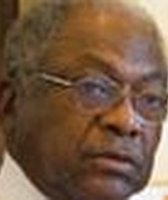Stand up for the facts!
Our only agenda is to publish the truth so you can be an informed participant in democracy.
We need your help.
I would like to contribute

Former Florida Gov. Jeb Bush speaks at the Manhattan Institute for Policy Research Alexander Hamilton Award Dinner on May 12, 2014, in New York. (AP Photo)
Amid growing talk about a possible presidential bid by Jeb Bush, the former Florida governor has been focusing more on public policy than on politics.
Bush has crisscrossed the country giving statistics-laced speeches that address education, immigration and the economy. He’s defended Common Core education standards and additional work-related visas for immigrants -- views not always in tune with the Republican base -- and he’s advocated for more economic and technological growth.
At PolitiFact, we have been fact-checking Bush since 2010 -- a total of 17 times. He’s earned four True ratings, six Mostly Trues, two Half Trues, four Mostly Falses and one Pants on Fire.
The Republican is best known for his stances on education reform -- something that he championed as governor between 1999 and 2007 and later through his Foundation for Excellence in Education.
Bush and the foundation will co-host the National Summit on Education Reform in Washington on Nov. 20-21. Topics include testing, school choice, funding and the achievement gap.
Here’s a look at some of our most notable fact-checks of Bush.
Education
In an October fundraising letter, Bush said that "1/3 of our kids drop out, cannot go to college or start a career."
There is more than one way to measure dropout frequency, but whichever one you use, Bush’s number was off.
In 2012, 6.6 percent of 16-to-24-year-olds were neither enrolled in school nor possessed an alternative high school credential such as a GED. That’s one-fifth of Bush’s number.
By measuring what percentage of people in an age range who had dropped out the prior year, in 2011 -- the most recent year this statistic was calculated -- the percentage was 3 percent. That’s less than 10 percent of what Bush had said.
Bush’s staff pointed to reports showing a large share of minority students dropping out, but his claim wasn’t specifically about minorities. So we rated this statement Mostly False.
Bush fared better on the Truth-O-Meter during a speech in May, when he said, "U.S. teenagers have now fallen behind their counterparts in Ireland, Poland and even Vietnam in math and science."
Bush correctly cited data showing that the United States trails the three countries in question. But it’s not so much that the United States has "fallen behind" them, since the U.S. has been behind Ireland and Poland for many years, and Vietnam was first tested in 2012. We rated Bush’s claim Mostly True.
Immigration
Bush, who speaks Spanish and is married to Mexican-born Columba, has talked about immigration policy for years. But a book he co-wrote with Clint Bolick in March 2013, Immigration Wars, Forging an American Solution put him in the spotlight again.
He wrote about the positive role of immigration and criticized those who focus only on border security. The book called for an overhaul to the country’s immigration system, including an emphasis on market demand by placing more emphasis on work, rather than family reunification, when granting visas.
"Nearly 65 percent -- almost two-thirds -- of all new permanent residents obtained that status by virtue of their family status," he wrote.
This number refers to a group known as legal permanent residents, also called "green card" holders. In 2011, about 1 million people became legal permanent residents of the United States, and those who entered based on family ties accounted for about 65 percent. We rated Bush’s statement True.
The book drew its biggest share of attention for its comments about citizenship. That’s what prompted U.S. Rep. Debbie Wasserman Schultz, D-Weston, to accuse him of flip-flopping on immigration.
"@JebBush a flip-flop-flip on immigration?" she tweeted in March 2013. "Wow. I fashioned you more of a baseball player than a gymnast. My bad. #notsurprisedatall."
Has Bush’s position changed over the years? In 1994 when Bush ran against Democratic Gov. Lawton Chiles, the Miami Herald asked Bush what he would do about illegal immigration. "Start deporting people," he answered.
Bush lost that race, then won the seat four years later. While governor, he began to change his stance. He called it "just plain wrong" to charge illegal immigrants with a felony, and he opposed "penalizing the children of illegal immigrants" by denying them U.S. citizenship.
But after he left office, Bush clearly made his "flip" in favor of a path to citizenship. "You have to deal with this issue," Bush said in 2012. "You can’t ignore it. And so, either a path to citizenship, which I would support, and that does put me probably out of the mainstream of most conservatives; or a path to legalization, a path to residency of some kind."
He then "flopped" back somewhat with the March 2013 release of the book, in which he explicitly opposed citizenship. "A grant of citizenship is an undeserving reward for conduct that we cannot afford to encourage," he wrote. However, the book didn’t take a hardline deportation approach: Bush called on illegal immigrants to plead guilty, pay fines, and learn English and then become eligible to start the process to earn permanent legal residency.
Because Bush has had different positions on immigration over the years, we rated Wasserman Schultz’s statement True.
(Since the book came out, he has presented a more flexible approach keeping open the idea for a path to citizenship. For instance, Bush gave a speech in April 2014 at George H.W. Bush’s presidential library in Texas, in which he urged the GOP to move beyond "harsh rhetoric" about illegal immigration: "Yes, they broke the law, but it’s not a felony. It’s an act of love, an act of commitment to your family. I honestly think that is a different kind of crime.")
Meanwhile, speaking at a conference in 2013, Bush said that "Immigrants are more fertile." We found some basis for that.
National statistics show that birth rates among foreign-born residents are about 50 percent higher than for U.S.-born women. However, the rates are converging, and they vary widely among immigrant groups and over the years. We rated the statement Mostly True.
Economy and infrastructure
In the recent fundraising letter, Bush said "among the developed nations, we are the least economically and socially mobile country in the world." We found data suggesting that America does lag behind most every developed country in terms of being able to move from the bottom rungs of the income ladder to the top. So we rated his statement True.
In a speech in Broward County in 2014, Bush said "There are over 100 pipelines between the United States and Canada right now." He was off base there: A 2013 Congressional Research Service report referred to 100 pipelines, but that included operating or proposed oil, natural gas, and electric transmission lines, and it counted pipelines crossing both the U.S.-Mexico border and the U.S.-Canada border. If we only count operating pipelines that cross the Canadian border, we count 29 natural gas pipelines and 17 oil pipelines, for a total of 46. We rated this claim Mostly False.
And a Pants on Fire!
On Thanksgiving eve 2013, Bush tweeted "Why would our president close the embassy to the Vatican? Hopefully, it is not retribution for Catholic organizations opposing Obamacare."
As it turned out, Obama was not closing the embassy to the Vatican -- the U.S. was moving to a more secure location closer to the Vatican. In addition, the move didn’t originate with Obama. It has been in the works since George W. Bush -- Jeb Bush’s brother -- was president. Finally, we found no evidence to support the idea that the relocation was related to battles over Obamacare. We gave Bush a Pants on Fire.
Spot a claim by Jeb Bush or another political figure in need of fact-checking? Tweet us #PolitiFactThis or email us at florida@politifact.com.
Our Sources
Foundation for Excellence in Education, National Summit, Nov. 20-21
CNN Transcript, Jake Tapper interview with Former Gov. Jeb Bush, March 5, 2013
See individual fact-checks for additional sources












































